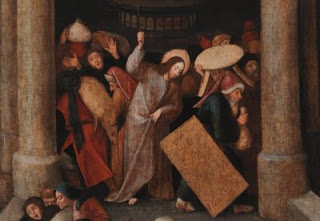Second Sunday of Easter / Sunday of Divine Mercy: April 07, 2024
Readings: Acts 4:32–35; Psalms 118:2–4, 13–15, 22–24; 1 John 5:1–6; John 20:19–31
The steam of election heat is rising as the temperatures here in Karnataka. It is paradoxical to see that creativity and human ingenuity are always at the rescue when something old has to be said in a new form. When national elections become the main news in our country, each political party is trying its best to put forward the assurances and promises to the public. Unfortunately, none of us demand any kind of balance sheet or practicability of the election promises from these political parties including our institutions of education or service and even by those best brains of our country. In fact, even our Church leaders are sterile to the political process of our country. Hardly, do we see any collective efforts from our Christian community leaders to encourage our brothers and sisters to engage and participate in the electoral process of our country actively as we as minorities live in turbulent times. The Resurrection of our Lord Jesus Christ created not only uproar in the religious life of Jews but also political turmoil in the entire Roman empire. And later, we see, in 312 AD, the entire Roman Empire accepted Christianity as the state religion.
1. Resurrection narrative: Seeing is believing
The resurrection of Jesus stands as an extraordinary event in the annals of human history, reverberating like a thunderclap throughout the Judeo-Roman world of his time. In an era where religion and politics were deeply intertwined, Jesus, initially a religious reformer, found himself enmeshed in the turbulent currents of political intrigue, earning him the title of King. This confluence is evident in the visit of the magi at his birth, the heinous massacre of innocent children by King Herod, the interrogation of Jesus by Pilate, and the provocative inscription "Jesus, the King of Jews." These events cast a shadow of suspicion over Jesus, fueling fears of political ambition. Despite the undeniable political undercurrents, Jesus' core mission remained centered on ushering people towards a divine connection, echoing the prophetic words of Isaiah 61:1-2 (Luke 4:16-21). When confronted with questions about taxes, Jesus encapsulated his stance with the famous words, “Give back to Caesar what is Caesar’s and to God what is God’s” (Mark 12:27), emphasizing the dual responsibilities of earthly governance and spiritual allegiance.








